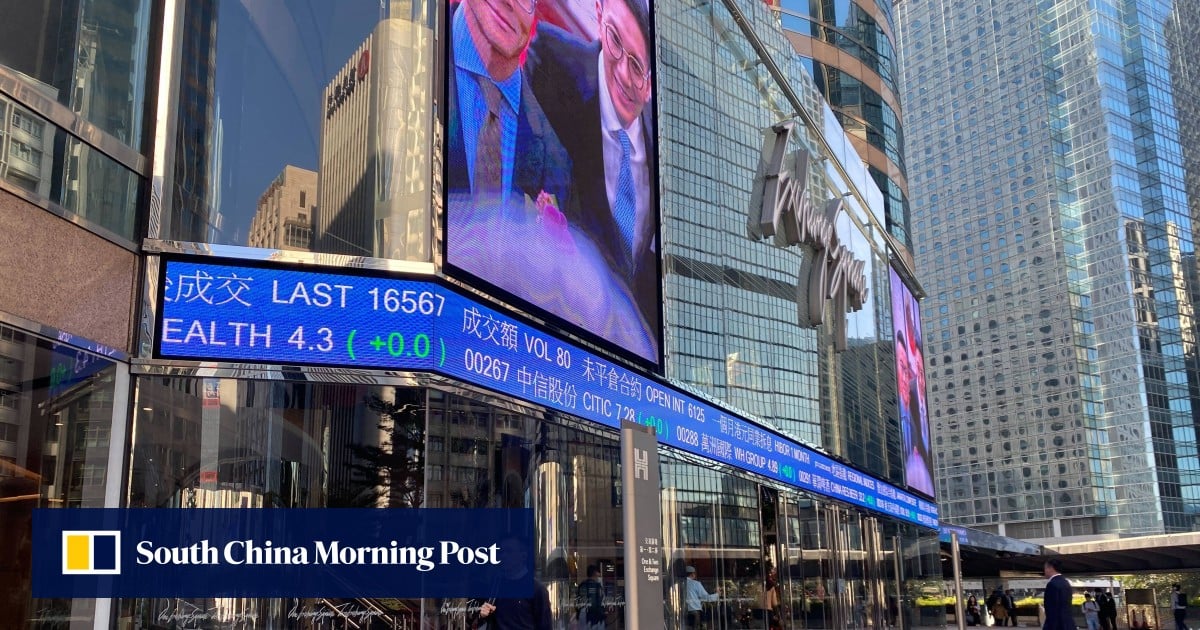
01 Jan Hong Kong listing reforms for SPACs, pre-revenue tech companies, foiled by high threshold, interest-rate cycle, experts say
HKEX’s performance in 2023 was even worse, with no SPACs listings taking place.

In Hong Kong, a SPAC needs to raise at least HK$1 billion (US$128 million) from professional investors and must announce an acquisition within 24 months, conditions that are more onerous than those in the US and Singapore.
The exchange has not yet seen any listing under the Chapter 18C rule introduced on March 31, 2023, which allows pre-revenue specialist technology firms to list if they have a valuation tag of at least HK$10 billion.
HKEX takes stock of its first female leader
HKEX takes stock of its first female leader
“The stringent listing thresholds, combined with cautious investor sentiments influenced by the challenging market conditions, contributed to the limited adoption of the SPAC reform and the 18C listing reform,” said Edward Au, southern region managing partner at Deloitte China.
Au said market uncertainties had led to a shift in investor focus to established companies with an earnings track record or those with a clear path to profitability.
The Hang Seng Index dropped nearly 14 per cent in 2023, the first time the benchmark has fallen four years in a row. It lost 15 per cent in 2022, 14 per cent in 2021 and 3.4 per cent in 2020.
“The market experienced a reduction in liquidity due to intensive US interest rate hikes, Sino-US geopolitical tensions, a slower-than-expected Chinese economic recovery, and adjustments in the real estate property sector,” Au said.
“This shift in investor behaviour resulted in a reluctance to invest in less certain and relatively higher-risk entities, such as SPACs and specialist technology companies.”
Stacey Wong, president of the Association of Hong Kong Capital Market Practitioners, said rising interest rates and the weak economy in mainland China also had a role to play in the failure of the reforms.
The Hong Kong dollar’s peg to the US dollar, in place since 1983, means the city’s monetary policy is conducted in lockstep with the US Federal Reserve to preserve the mechanism, even if the cycles of the two economies differ.
The city’s base rate had to follow the Federal Reserve under this arrangement and was raised by 525 basis points since March 2022.
“The interest-rate rise has ended free money chasing companies with crazy valuations. It could also be due to risks in the technology sector, which is subject to lots of geopolitical risks now,” Wong said.
Wong urged the HKEX to further relax the listing process to improve the situation.
“HKEX should reform the vetting process and revert to bright-line tests, reducing subjectivity, creating a clear road map to listing, to increase transparency and hence attractiveness to potential applicants, big and small,” Wong said.
“HKEX should continue to solicit global companies, to become a truly international stock market and attract more cross-border investors. The international push in the Middle East and Southeast Asia fits this bill.”
Deloitte’s Au agreed the HKEX has to fortify its global standing.
“We recommend that the HKEX intensify engagement with emerging economies in the Middle East and Asean. Establishing a presence in the Middle East would facilitate the promotion of Hong Kong’s capital market,” Au said.
Au also urged the HKEX to set up an online platform to facilitate the secondary market for venture capital and private equity investments.
“By creating a dedicated space for these transactions, the HKEX can further position itself as a hub for fostering innovation and supporting the growth of promising ventures within the region,” Au said.
